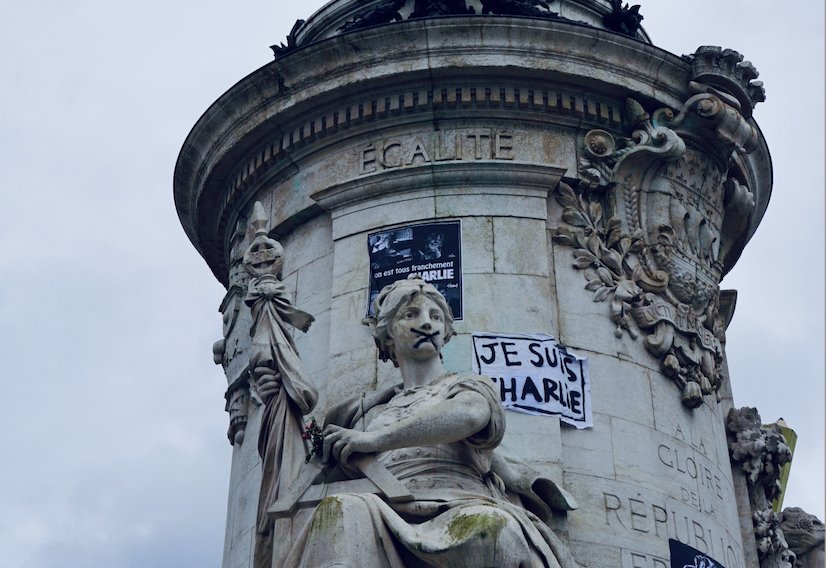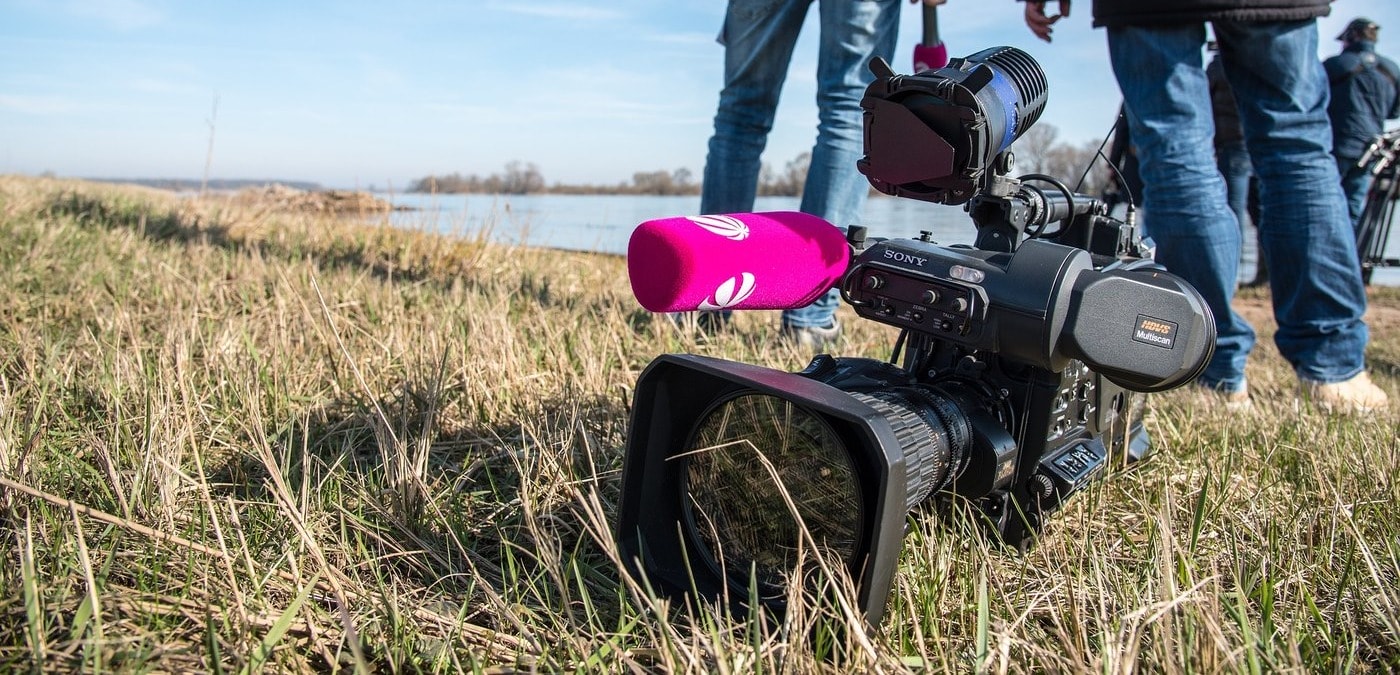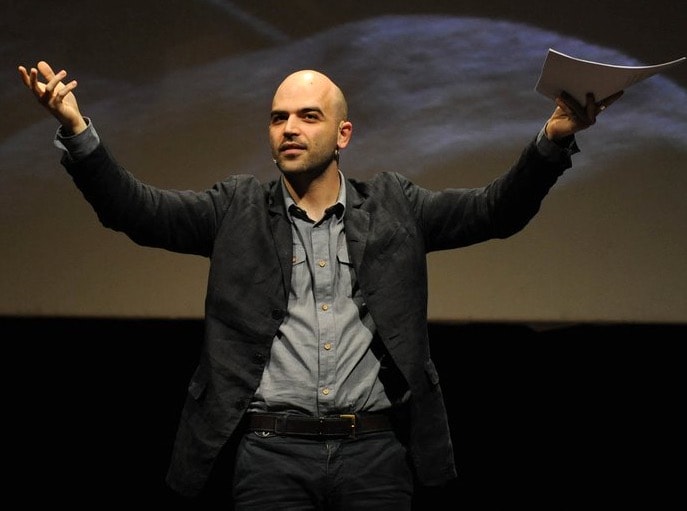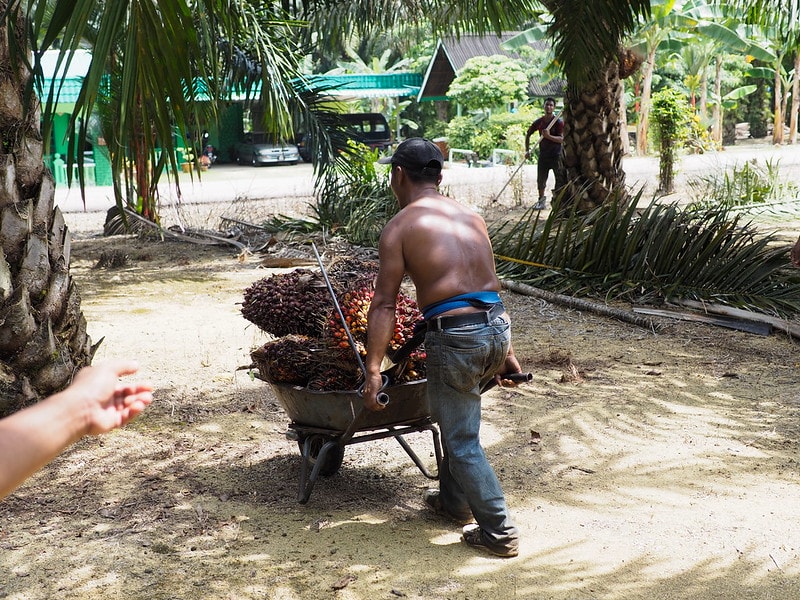Today is World Press Freedom Day, and the European Council, the junta of 27 leaders heading the European Union, marked the day by stating that: “Safety of journalists is a EU priority.”
The Council statement goes on to recall that:
“The EU is providing emergency support to media outlets and journalists covering the war in Ukraine, including psychological support, helmets and other protective equipment, as well as financing to cover salaries.”
And it concludes: “The European Union stands with them. Free press allows for a more democratic, stronger and inclusive society and is instrumental in the protection and promotion of human rights. We will continue to fight for press freedom and not pull back.”
Brave and welcome words, particularly now with the war in Ukraine: According to the Council of Europe platform for the protection of journalism and safety of journalists, already 11 Ukrainian and international media workers were killed and many others were wounded:
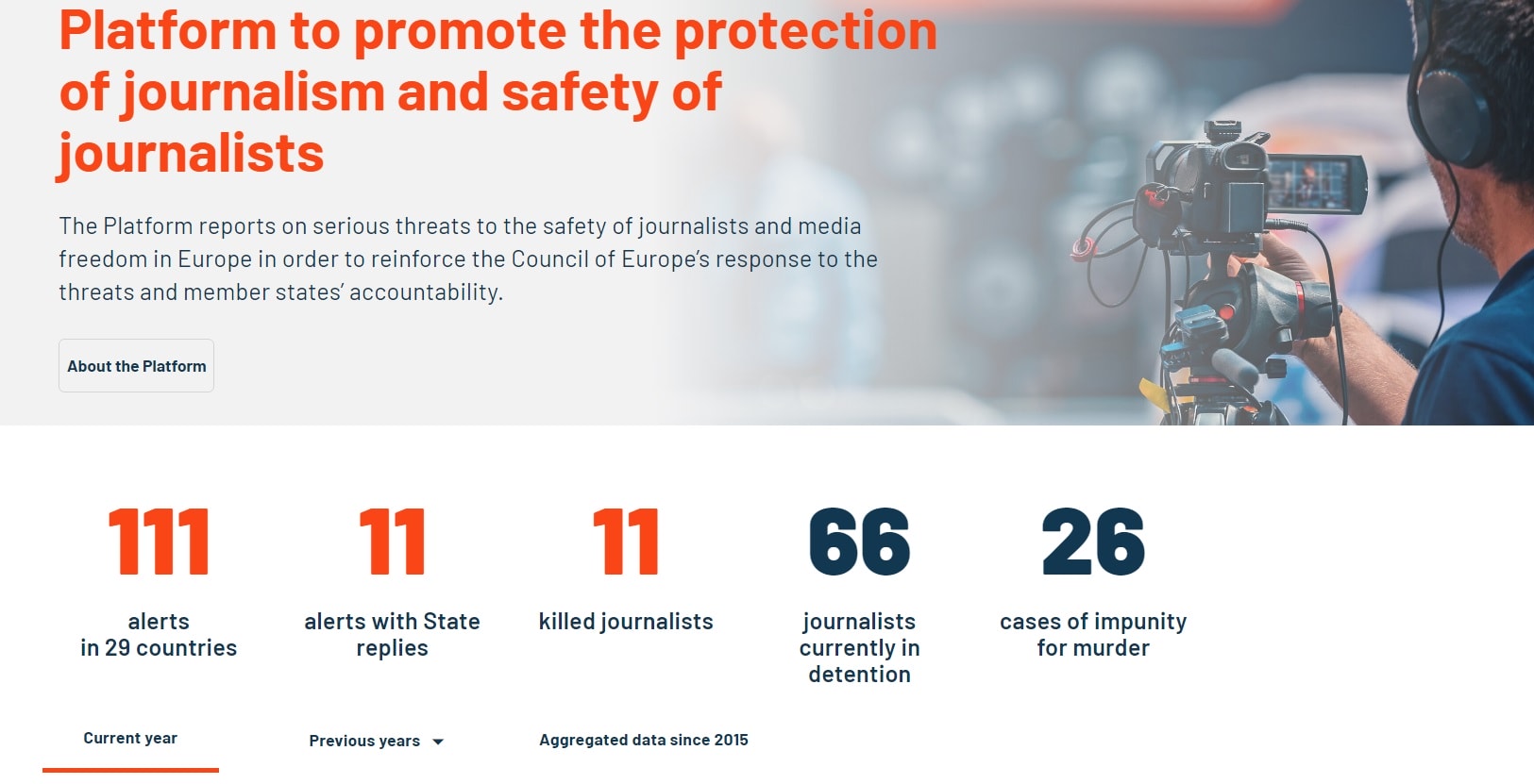
The above numbers are underestimating the real situation on the ground according to Ukrainian sources: At least 20 journalists and media workers have died or been injured since Russian tanks rolled into Ukraine on February 24, according to the National Union of Journalists of Ukraine.
And the above numbers do not cover either the journalists who are maimed for life – we reported on that here on Impakter and we know that is only the tip of the iceberg.
Journalists fighting for the right of people to hear the truth are killed and maimed everywhere, not to mention the terroristic element that forces newspapers to close down their activities, as they are unable to continue to function in chaotic, political meltdowns – often the case in Mexico.
Nowhere, in fact, is the situation direr than in Mexico, ranked as the deadliest country for journalists in 2021, with seven journalists killed according to the International Press Insitute – IPI Media Death Watch.
Close on Mexico’s heels in this sad race is Myanmar where journalists risk their lives daily to deliver the news. Myanmar’s military coup last year sparked an extremely harsh repression of journalists. The Taliban’s seizure of power in Afghanistan also further worsened conditions for reporters and news organizations, who are often the targets of intimidation and violence.
But, if you look at it globally, the IPI Death Watch reveals a shocking situation everywhere:
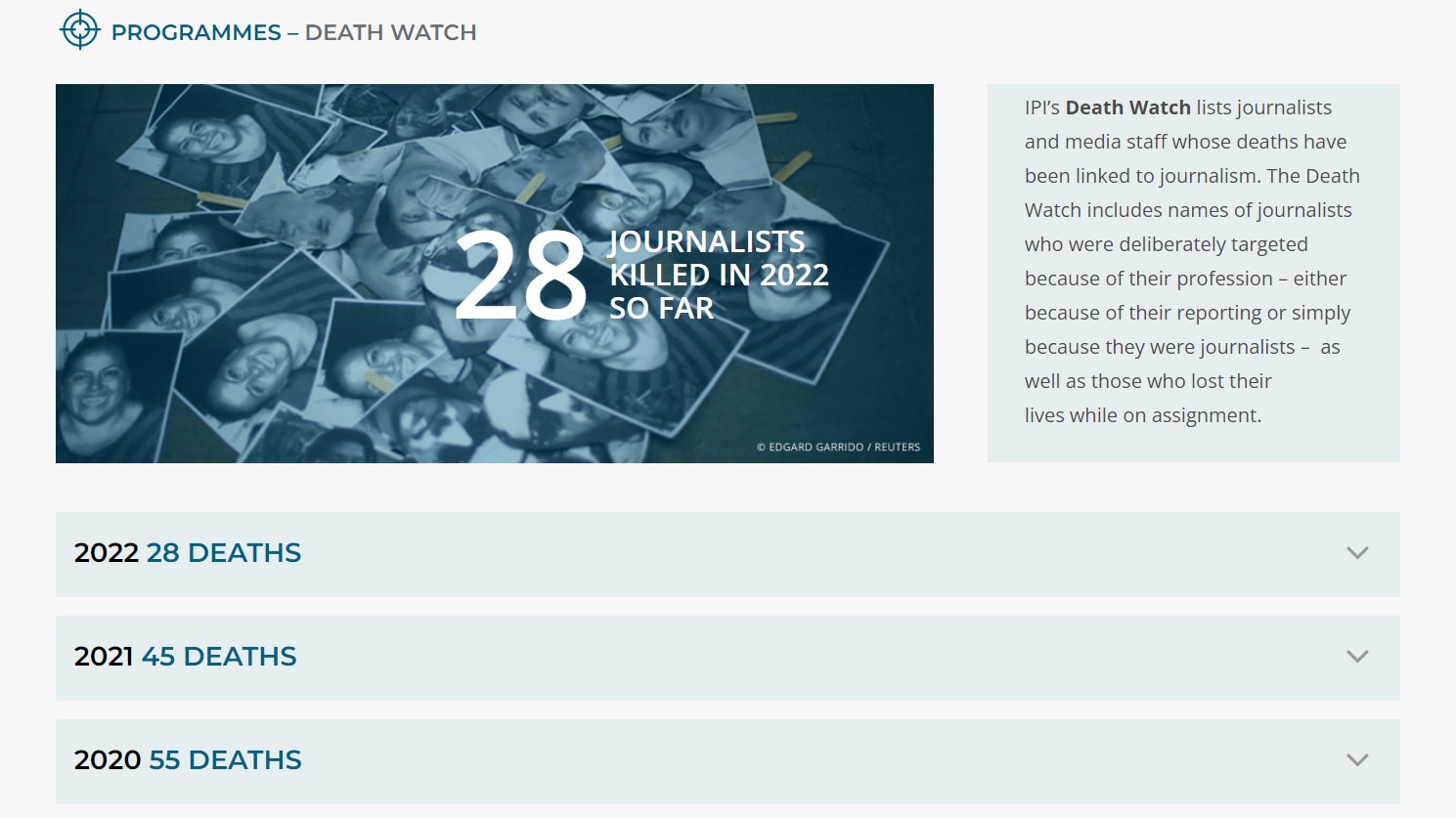
With only 4 months into 2022 and already 28 deaths, this year promises to be the worst year yet, undoubtedly as a result of the Ukraine war where nearly half the deaths have occurred so far.
Confirmation of degradation of freedom of the press around the world comes from the just-published RSF Index that has monitored press freedom over the past 20 years
The latest version of the Reporter Without Borders (RSF) Index gives us a disturbing picture, with only a limited part of the world really enjoying freedom of the press. As RSF indicated in its commentary of the index, we are headed towards an increasingly polarized world and “information chaos”:
The number of countries classified on the basis of 5 broad indicators – political, economic, legal, socio-cultural and safety – as “very bad” has multiplied, reaching a record 28 countries (12 more than last year) and is indicated in red in their map:
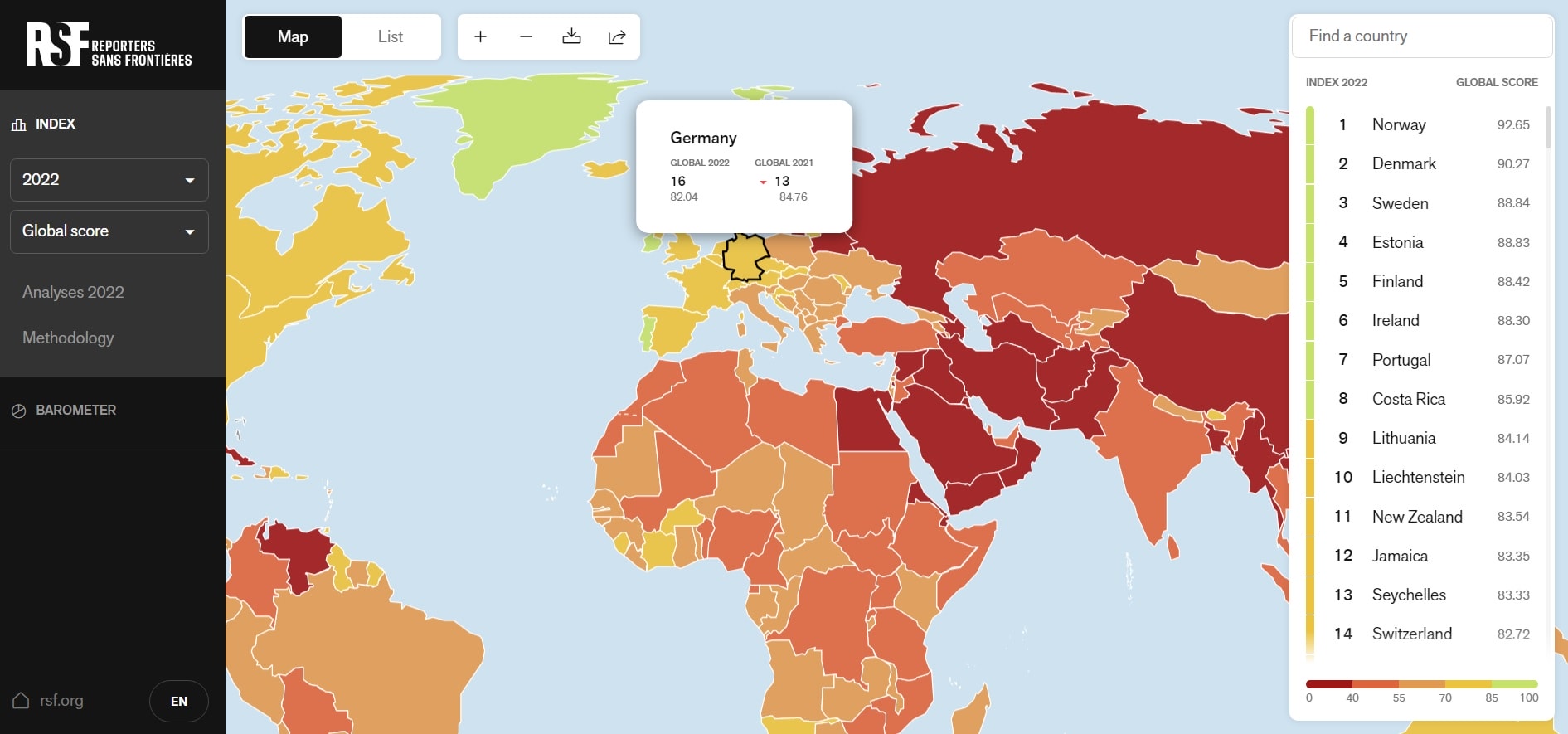
While the RSF has changed its methodology last year and care needs to be taken when making yearly comparisons, basic long-term trends reliably reflect the truth of the situation.
The top three countries remain unsurprisingly the Scandinavian countries, Sweden, Denmark and Norway; they are joined by most of Europe and Canada (at the 19th rank). Remarkably, the United States is not among the top countries: It ranked 44 in 2021 and now in 2022 it sits at 42nd rank, surely, it could do better. And this despite Biden’s election.
But the US is not the only democracy that causes worries in this respect, and so does Poland. As RSF noted regarding the latter: “The suppression of independent media is contributing to a sharp polarization in “illiberal democracies” such as Poland (66th), where the authorities have consolidated their control over public broadcasting and their strategy of “re-Polonising” the privately-owned media.” And that is of course true of Hungary too which sits at 85th rank.
The bottom quarter is led equally unsurprisingly by Iran, Eritrea and North Korea – and now joined by Russia that has tumbled from 150th rank (already not good) to 155 (worse) – about as bad as Afghanistan or Myanmar – as Putin continues his war against Ukraine externally and democracy internally. His war censorship is literally the cherry on the Putin cake.
Indeed, the polarization has increased and that, as underlined by RSF, is what is deeply worrying for our common free future.
Editor’s Note: The opinions expressed here by Impakter.com columnists are their own, not those of Impakter.com. — In the Featured Photo: Journalist documenting war event in Ukraine – from our article about a Fox news crew coming under fire in Ukraine, March 15 2022



